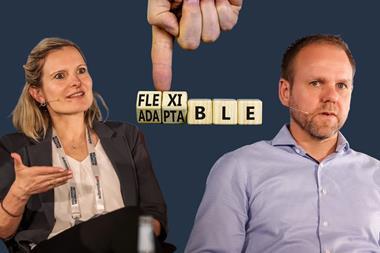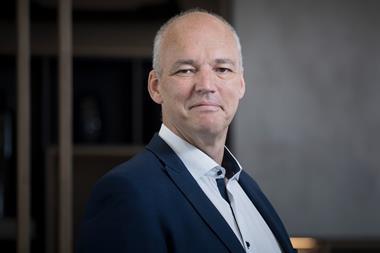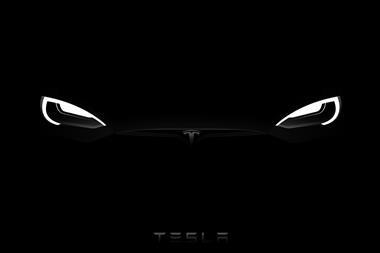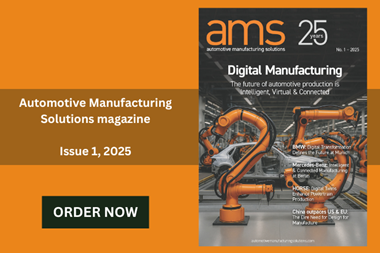 Running from 7-9 May, the Electric & Hybrid Vehicle Technology Conference Europe, co-located with The Battery Show Conference Europe, sets out to address the most pressing and pervasive challenges within the battery and electric vehicle industries today.
Running from 7-9 May, the Electric & Hybrid Vehicle Technology Conference Europe, co-located with The Battery Show Conference Europe, sets out to address the most pressing and pervasive challenges within the battery and electric vehicle industries today.
The dual events, taking place at Stuttgart, Germany, provide an ideal opportunity for anyone working in or connected to these industries to discover the latest developments and hear from those at the vanguard of industry evolution.
Expert speakers from organisations including from Daimler, Audi, VW and BAIC Motor Company are billed to share their insights at Electric & Hybrid Vehicle Technology Conference.
Meanwhile, at the co-located event of The Battery Show Conference Europe, speakers from Audi, Mercedes-Benz and Williams Advanced Engineering are among the automotive names confirmed to discuss the significant current and predicted developments around .
The conferences from part of the Electric & Hybrid Vehicle Technology Expo that includes an extensive tier supplier technical showcase and trade fair, demonstrating what can be achieved in battery performance through the design and assembly.
The overall programme is designed to compare recent developments and discuss in detail the latest technologies and solutions intended to optimise electric and hybrid vehicles.
BATTERY PRODUCTION TRENDS
The conference programme touches on a number of manufacturing related topics, with Day 3 providing a track dedicated to battery manufacturing trends.
Gigafactory growth
The International Energy Agency (IEA) has reported that the world needs at least 10 more gigafactories to support the predicted growth in demand of batteries by OEMs by 2025.
A key challenge in meeting the power requirements of the future is the infrastructure that is required to enable the build of gigafactories in Europe, which would require a balance of several factors such as location, infrastructure and government policies.
The session Ramping Up Battery Assembly to Meet Future OEM Demand: Building Gigafactories in the EU will examine the challenges in setting up battery manufacturing production lines that not only enable the volume of cells demanded by the market but also meet the increasing sustainability requirements set by governments and OEMs alike.
- The Electric & Hybrid Vehicle Technology Expo
- 7-9 May, Stuttgart, Germany
- For more details on conference ticket prices, full agenda and speaker list visit
- www.evtechexpo.eu
- Entry to the exhibition is free of charge
Solid-state debate
With the global push toward electrification, solid-state batteries are considered the next-generation power units for EVs. There is contention within the industry, however, on the viability of solid-state technology. In a live poll at last year’s show, 57% of the respondents believed the technology is 10+ years away from implementation. Furthermore, some see it as too complex to ever make its way to full-scale production.
The drawbacks of solid-state technology include the cost of manufacturing processes and long validation cycles of the automotive industry. For it to be scaled-up many hurdles need to be overcome. For example, sulphite-based technologies require careful management of the manufacturing environment; oxides are easier to produce but have lower conductivity.
The conference session Validating Solid-State Battery Technology for Commercialising and Scale-up will examine the various solid-state technologies such as sulphite, oxide and polymers as well as their manufacturability and cost.
Sustainable and viable
Recycling of raw materials is gaining momentum in the industry as a valuable resource. As things stand, the volumes of EV batteries that need to be recycled are not sizeable enough to be economically viable. By as soon as the mid 2020s, however, expectations are that large volumes of Li-ion batteries will hit the market.
The viability of cell recycling depends on the adoption of vehicles in the EU and North America and the recycling process needs to be developed and industrialised. The technology that will support the influx of batteries that will be needed to be recycled post 2025 is in early piloting scale but is maturing very rapidly.
In Asia, the process has already been scaled up successfully, with many other initiatives coming off the ground over the next few years. Chinese battery manufacturers are ramping up their recycling capacity; Japanese automakers have announced plans to unify battery recycling and Nissan has opened a processing centre for recycling of electric vehicle batteries of their Leaf EV, refurbishing the cells and creating an affordable aftermarket for their platform.
The recycling of battery cells as a viable raw material resource will be examined in the conference session Creating Material Feed Stock Through Battery Recycling.




































